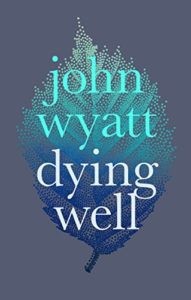 The Covid-19 pandemic has brought to the foreground something we usually keep at the very back of our minds, if not deep in the basement. One day each one of us will die.
The Covid-19 pandemic has brought to the foreground something we usually keep at the very back of our minds, if not deep in the basement. One day each one of us will die.
Nothing is certain in life except death and taxes, is the saying, and we will talk freely about taxes. But about death? It is not a conversation starter to ask, ‘have you given any thought to your dying?’ But it’s something we need to ask ourselves, especially if we would like to die well, as most of us would.
We can’t, and don’t, because ‘there is a conspiracy of silence about it,’ said Professor John Wyatt (author, speaker and research scientist) in a Premier Radio interview recently. In his book, Dying Well, he says that if you ask most people how they would like to die they will say: ‘I want to die in my bed while I’m asleep. I don’t want any warning, any premonition, any awareness. I want to go out like a light.’
What a wasted opportunity, he writes! Dying is not all doom and gloom. ‘It can bring strange and wonderful opportunities: internal growth, the healing of relationships,gratitude, laughter, fulfilling dreams.’ He suggests writing down things that would be important to you, such as being free of pain, who you would like to be with you, whether you would like to die at home or in a hospice, would you like certain prayers or music, and so on.
For many, the process of dying is something alien to us, something fearful and unknowable. ‘The most powerful fears are the unknown and undiscussed,’ writes John Wyatt, ‘when we discuss these honestly and openly together we can see that some of our darkest fears are out of touch with reality. The terrible fears of the night are so much easier to face in the bright light of the day.’ The apostle John tells us that we should walk in the light of the day (1 John:7), and one way to do this is to do this is to share our thoughts and fears with those we love, and trust.
And here’s the rub – we don’t want to upset those we love with what they would see as ‘morbid thoughts’. One of the most difficult things to cope with is relatives’ reactions.
So, here we are, with a culture that says it’s perfectly acceptable to talk about Heaven and how wonderful it will be, but not about the physical process of getting there. Perhaps a way of opening up the topic would be to talk about those loved ones who have gone before. I’ll always remember one of our residents, a wise lady called Winifred Vandenberg, who told me that when one of their friends or relatives died, her husband would say, ‘another link with the Homeland!’
Perhaps having more links with the Homeland as you grow older helps lessen fears of dying. Certainly, most of our older residents have no fear. Sometimes it seems that the wall between earth and heaven grows thinner with frailty and age. The aunt of a friend of mine kept asking her, ‘what is this Easter music I am hearing?’
 Or, perhaps, as singer Tim McGraw’s father said as he lived through a terminal diagnosis, we need to live like we are dying. His song gives some insights: https://www.youtube.com/watch?v=_9TShlMkQnc
Or, perhaps, as singer Tim McGraw’s father said as he lived through a terminal diagnosis, we need to live like we are dying. His song gives some insights: https://www.youtube.com/watch?v=_9TShlMkQnc
Jesus death at Calvary means that death has lost its victory, the grave has lost its sting. Shouldn’t we behave as though we really believe it, and break the ‘conspiracy of silence’? To talk about dying sensitively but easily, without fear of upsetting anyone? To have heaven so embedded in our souls that when dying is mentioned it is seen for what it is, a journey into a glorious eternity.
It would be interesting to know how many people feel free to do this! Perhaps during my next talk I will ask everyone to tell me and to talk, briefly, about what they would like. And if you’ve read this far, let me know your thoughts…














